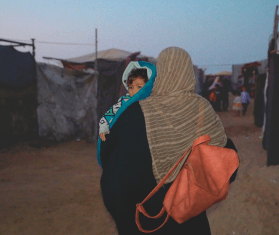Following an announcement that Italy has started transferring people rescued at sea to the two centers Doctors Without Borders/Médecins Sans Frontières (MSF) built in Albania, the organization is concerned about the potential impact on the well-being of people rescued at sea and their access to rights.
Italy’s latest strategy to offshore its responsibilities for people seeking safety and protection is likely to result in further harm and violation of human rights. This move will prevent survivors from accessing adequate asylum procedures and vulnerability assessments, which is in contravention of Italy’s obligations under international and European law.
The disembarkation of rescued people who are deemed to not be vulnerable in Albania raises important human rights concerns, particularly the right to liberty, access to protection, and adequate asylum procedures, as well as more practical issues of identification of vulnerable people and living conditions in reception centers in the country.
"We know that it's impossible to adequately assess people's vulnerabilities while on a ship at sea, which requires resources that are only available on land," says Juan Matias Gil, MSF search and rescue representative.
“MSF teams working in detention centers in Europe and beyond have observed a significant impact on people's mental health resulting from the lack of freedom of movement,” adds Gil. “Prolonged and arbitrary detention continues to have severe consequences on migrants and asylum seekers who are detained. People in search of safety and protection continue to be exposed to inhumane conditions at EU borders, with very limited access to information, appropriate services, and protection."




